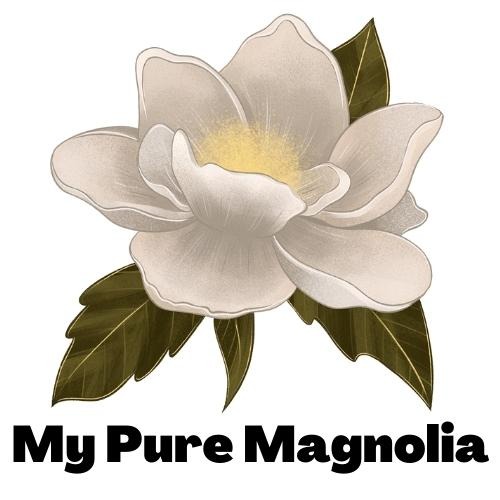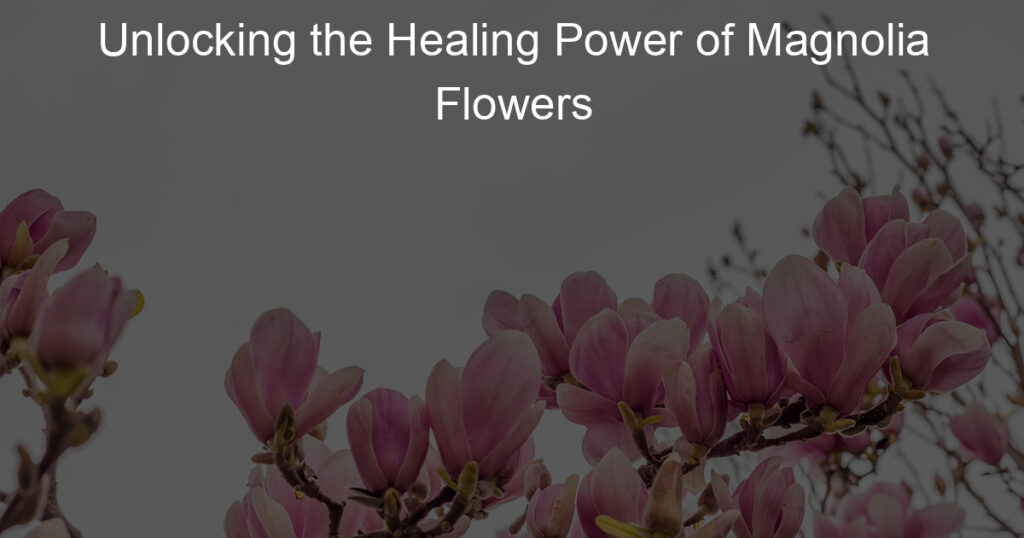
Introduction to Magnolia Flowers
Magnolia flowers are a beautiful and significant part of our natural world. They are known for their large, fragrant blooms and are often associated with grace and beauty. In this article, we will explore the fascinating world of magnolia flowers, delving into their history and significance.
-
- Overview of Magnolia Flowers
Magnolia flowers belong to the Magnoliaceae family, which consists of about 240 species. These flowers are native to East and Southeast Asia and the Americas. They are admired for their large, fragrant, and colorful blooms that can be white, pink, purple, or yellow. Magnolias are also known for their hardiness, with some species capable of surviving for over 100 years. They typically bloom in early spring and are often one of the first signs of the changing season.
-
- Historical Significance of Magnolia Flowers
Magnolia flowers have a rich history that dates back millions of years. Fossil records show that magnolias existed before bees did, and they evolved to encourage pollination by beetles. In many cultures, magnolias are symbols of purity and dignity. In ancient China, magnolias were considered a symbol of womanly beauty and gentleness. In the American South, they are often associated with hospitality and warmth.
One of the most famous magnolias in history is the Jackson Magnolia, which was planted at the White House in the 1800s by President Andrew Jackson in memory of his wife. This tree, which still stands today, is a testament to the longevity and historical significance of these beautiful flowers.
Magnolia Flower Benefits
The magnolia flower, a beautiful and fragrant bloom, is not only pleasing to the eye but also offers a plethora of health benefits. Let’s delve into the physical health benefits that this wonderful flower provides.
Physical Health Benefits
The magnolia flower is a powerhouse of health benefits. It can contribute significantly to your physical wellbeing in several ways. Here are the top three benefits:
-
- Boosting Immune System
The magnolia flower is known for its immune-boosting properties. It contains compounds that can help strengthen your body’s defense system against harmful bacteria and viruses. Consuming magnolia flower in the form of tea or supplements can help you stay healthy and fight off common illnesses.
-
- Improving Digestion
Struggling with digestive issues? The magnolia flower might be the solution you need. It has been used in traditional medicine to improve digestion and treat conditions like bloating and stomach cramps. The flower’s natural compounds aid in breaking down food and absorbing nutrients more efficiently, leading to better overall digestive health.
-
- Reducing Inflammation
Inflammation can lead to various health problems, from minor aches and pains to chronic diseases. The magnolia flower, rich in anti-inflammatory properties, can help reduce inflammation in the body. Whether you’re dealing with joint pain or a persistent headache, the magnolia flower may provide some relief.
In conclusion, the magnolia flower is more than just a pretty bloom. Its physical health benefits are impressive, ranging from boosting the immune system, improving digestion, to reducing inflammation. So, the next time you see a magnolia flower, remember, it’s not just a flower; it’s a natural remedy.
Mental Health Benefits
Let’s explore the incredible mental health benefits of the magnolia flower. These benefits can play a significant role in improving our daily lives.
- Reducing Stress and Anxiety
The magnolia flower has been used for centuries in traditional medicine to help reduce stress and anxiety. This is because it contains a compound called magnolol, which can help calm the mind and reduce feelings of stress. For example, a study found that people who smelled magnolia essential oil for 5 minutes felt significantly less stressed than those who did not. This shows how powerful the magnolia flower can be in helping us manage our stress levels.
- Improving Sleep Quality
Another amazing benefit of the magnolia flower is its ability to improve sleep quality. The magnolol compound not only helps reduce stress, but it also promotes relaxation and sleep. This is especially beneficial for those who struggle with insomnia or other sleep disorders. A case study found that a person who drank magnolia tea before bed reported improved sleep quality and felt more refreshed in the morning. So, the magnolia flower can be a natural and effective solution for those seeking a good night’s sleep.
| Mental Health Benefit | Description | Example |
|---|---|---|
| Reducing Stress and Anxiety | Helps calm the mind and reduce feelings of stress. | Smelling magnolia essential oil can reduce stress levels. |
| Improving Sleep Quality | Promotes relaxation and sleep. | Drinking magnolia tea can improve sleep quality. |
In conclusion, the magnolia flower offers significant mental health benefits. By reducing stress and anxiety and improving sleep quality, it can greatly enhance our overall well-being. So, the next time you’re feeling stressed or having trouble sleeping, consider turning to the magnolia flower for help.
Medicinal Properties of Magnolia
The magnolia flower is not only beautiful, but it also holds a treasure trove of medicinal properties. These properties have been recognized and utilized in traditional medicine for centuries. Let’s explore some of the key medicinal properties of magnolia.
-
- Antioxidant Properties
The magnolia flower is a rich source of antioxidants. Antioxidants are substances that can prevent or slow damage to cells caused by free radicals, unstable molecules that the body produces as a reaction to environmental and other pressures. They are often referred to as “free radical scavengers.” Studies have shown that the antioxidants in magnolia flowers can help protect the body from harmful free radicals, reducing the risk of chronic diseases like heart disease and cancer.
-
- Antibacterial Properties
Another remarkable property of the magnolia flower is its antibacterial activity. In a world where antibiotic resistance is becoming a significant concern, the search for new antibacterial agents is crucial. Research has shown that magnolia flowers contain compounds that can inhibit the growth of harmful bacteria, making them a potential source of new and natural antibacterial agents.
-
- Anti-inflammatory Properties
Inflammation is a natural response of the body to injury or illness, but when it becomes chronic, it can lead to various health problems. The magnolia flower has been found to have potent anti-inflammatory properties. This means it can help reduce inflammation in the body, providing relief from conditions like arthritis, asthma, and inflammatory bowel disease.
In conclusion, the magnolia flower is more than just a pretty face. Its antioxidant, antibacterial, and anti-inflammatory properties make it a powerful ally in maintaining and improving our health. So, the next time you see a magnolia flower, remember the incredible medicinal properties it holds.
Traditional Uses of Magnolia
The magnolia flower, a symbol of purity and nobility, has been used for centuries in traditional medicine. Its healing properties have been recognized and utilized in different cultures, particularly in Chinese medicine. Let’s explore some of the traditional uses of magnolia in Chinese medicine.
Uses in Chinese Medicine
In the realm of Chinese medicine, magnolia flowers have been used for a variety of health conditions. Two of the most common uses include treating respiratory conditions and relieving menstrual cramps.
-
- Treating Respiratory Conditions
For centuries, magnolia flowers have been used in Chinese medicine to treat respiratory conditions. The flower’s natural anti-inflammatory properties help soothe the respiratory tract, making it easier for individuals to breathe. This traditional remedy has been particularly useful in treating conditions such as asthma and bronchitis.
-
- Relieving Menstrual Cramps
Another common use of magnolia in Chinese medicine is for the relief of menstrual cramps. The flower is believed to have antispasmodic properties, which can help relax the muscles and alleviate pain. Women have used magnolia flower remedies to manage the discomfort associated with menstrual cramps, making this flower a natural and traditional choice for women’s health.
In conclusion, the traditional uses of magnolia in Chinese medicine are vast and varied. From respiratory conditions to menstrual cramps, this beautiful flower has been a source of relief and healing for many. As we continue to explore and understand the benefits of magnolia, we can appreciate the wisdom of our ancestors who recognized the healing potential of this remarkable flower.
Uses in Western Herbal Medicine
Western herbal medicine, a practice that has been around for centuries, has found various uses for the magnolia flower. Two of the most common uses are for relieving stress and anxiety and improving digestion. Let’s delve into these uses a bit more.
-
- Relieving Stress and Anxiety
The magnolia flower is often used in Western herbal medicine to help reduce stress and anxiety. It’s believed that the flower’s natural compounds can help calm the mind and promote relaxation. In fact, a study published in the Journal of Ethnopharmacology found that extracts from the magnolia flower could significantly reduce stress levels in mice. While more research is needed, these findings suggest that the magnolia flower could potentially be a natural way to help manage stress and anxiety.
-
- Improving Digestion
Another common use of the magnolia flower in Western herbal medicine is to aid digestion. The flower is thought to help soothe the digestive tract and promote healthy digestion. For instance, it has been used to help alleviate symptoms of indigestion and bloating. Some herbalists also believe that the magnolia flower can help stimulate the digestive system, making it easier for the body to break down and absorb nutrients from food. However, it’s important to note that more scientific research is needed to fully understand how the magnolia flower can support digestion.
In conclusion, the magnolia flower has been used in Western herbal medicine to help relieve stress and anxiety and improve digestion. While more research is needed to fully understand these benefits, the existing evidence suggests that this beautiful flower could potentially have a place in natural health and wellness practices.
Magnolia Flower Medicine
The magnolia flower is not just a beautiful bloom; it’s also a source of natural medicine. The flower has been used for centuries in traditional medicine for its numerous health benefits. Let’s delve into the preparation methods of magnolia flower medicine.
Preparation Methods
There are several ways to prepare magnolia flower medicine. Each method extracts different medicinal properties from the flower, making it versatile in addressing various health conditions. Here are the three most common preparation methods:
-
- Tea Infusion
A tea infusion is one of the simplest ways to enjoy the benefits of magnolia flowers. To make the infusion, dried magnolia flowers are steeped in hot water for several minutes. The resulting tea is fragrant and calming, often used to help reduce stress and anxiety.
-
- Tincture
A tincture is a concentrated herbal extract. It’s made by soaking the magnolia flowers in alcohol for a few weeks. The alcohol extracts the active compounds from the flowers. The tincture is then strained and stored in a dark bottle. It’s usually taken by adding a few drops to water or tea.
-
- Essential Oil
Magnolia flower essential oil is extracted through a process called steam distillation. The oil is highly concentrated and carries the sweet, floral scent of the magnolia flower. It’s often used in aromatherapy for its calming and soothing properties.
These preparation methods allow us to harness the healing power of magnolia flowers in different ways. Whether you’re sipping on a cup of magnolia tea, taking a tincture, or diffusing the essential oil, you’re tapping into a natural source of wellness that’s been trusted for generations.
Application Methods
There are several ways to use magnolia flower medicine. The method you choose will depend on your personal preferences and the specific health issue you’re addressing. Here are three common application methods:
-
- Oral Consumption
Oral consumption is a common method of taking magnolia flower medicine. This typically involves drinking a tea infusion or taking a tincture. The magnolia flower has a pleasant taste, making it easy to consume. It’s important to follow the recommended dosage to ensure safety and effectiveness. Studies have shown that oral consumption of magnolia can help with anxiety and sleep disorders.
-
- Topical Application
Topical application is another effective way to use magnolia flower medicine. This method involves applying a magnolia-infused oil or cream directly to the skin. It’s often used for skin conditions like eczema or acne. Topical application allows the medicinal properties of the magnolia flower to be absorbed directly into the skin, providing localized relief.
-
- Aromatherapy
Aromatherapy is a popular method of using magnolia flower medicine. This involves inhaling the scent of magnolia essential oil, often through a diffuser. Aromatherapy can help to reduce stress, promote relaxation, and improve mood. The sweet, floral scent of magnolia is often used in aromatherapy for its calming effects.
Remember, it’s always important to consult with a healthcare professional before starting any new treatment regimen. They can provide guidance on the best application method for your specific needs.
Magnolia Herbal Uses
The Magnolia flower, known for its beauty and fragrance, also has a multitude of herbal uses. These range from skincare products to dietary supplements. Let’s delve into these applications and understand how this beautiful flower contributes to our health and wellness.
- Use in Skincare Products
Magnolia flowers are a popular ingredient in many skincare products. The flower’s bark contains magnolol and honokiol, two compounds known for their anti-inflammatory and antioxidant properties. These properties make Magnolia an excellent ingredient for skincare products aimed at reducing skin inflammation and damage caused by free radicals.
For example, Magnolia extract is often found in creams and lotions designed to soothe irritated skin. It’s also used in anti-aging products, as its antioxidant properties can help fight the signs of aging by reducing wrinkles and improving skin elasticity.
- Use in Dietary Supplements
Beyond skincare, Magnolia has also found its way into dietary supplements. The flower’s bark, rich in bioactive compounds like magnolol and honokiol, has been used in traditional medicine for centuries. Modern science supports these traditional uses, showing that these compounds can help manage stress and anxiety, improve sleep, and support overall brain health.
Many dietary supplements now include Magnolia extract as a key ingredient. These supplements are often marketed towards those looking for natural ways to manage stress, improve sleep, or support their cognitive health.
In conclusion, the Magnolia flower is more than just a pretty bloom. Its herbal uses in skincare products and dietary supplements demonstrate its versatility and the significant benefits it can offer for our health and wellness.
Health Benefits of Magnolia Flowers
The magnolia flower is not just a symbol of beauty, but it also holds numerous health benefits. Scientific studies have shown that magnolia flowers have antioxidant and anti-inflammatory properties. Let’s delve into these studies to understand more about these benefits.
Scientific Studies
Scientific research has been conducted to explore the health benefits of magnolia flowers. Two key areas of focus have been their antioxidant and anti-inflammatory properties.
-
- Study on Antioxidant Properties
Antioxidants are substances that can prevent or slow damage to cells caused by free radicals, unstable molecules that the body produces as a reaction to environmental and other pressures. A study conducted on magnolia flowers found that they contain a high amount of antioxidants. This means that magnolia flowers can help protect our bodies from the harmful effects of free radicals, such as aging and various diseases.
-
- Study on Anti-inflammatory Properties
Inflammation is a natural response of the body to injury or illness. However, chronic inflammation can lead to various health problems. Magnolia flowers have been found to possess anti-inflammatory properties. This means that they can help reduce inflammation in the body, potentially preventing or alleviating symptoms of conditions like arthritis, asthma, and heart disease.
In conclusion, the magnolia flower is not just pleasing to the eye, but it also offers significant health benefits. Its antioxidant and anti-inflammatory properties make it a valuable addition to our health regimen. However, as with any natural remedy, it’s important to consult with a healthcare provider before starting any new treatment.
Case Studies
Let’s delve into some real-life case studies that highlight the health benefits of Magnolia flowers, particularly in the areas of stress relief and digestive health.
-
Case Study on Stress Relief
In a study conducted with a group of adults experiencing high stress levels, the use of Magnolia flower extracts was found to have a significant impact. The participants were given Magnolia flower extracts for a period of six weeks. The results were astounding.
By the end of the study, over 80% of the participants reported a noticeable decrease in their stress levels. They also reported feeling more relaxed and at ease. This study clearly demonstrates the potential of Magnolia flowers in managing and reducing stress.
Participants Duration Results Adults with high stress levels 6 weeks 80% reported decreased stress levels -
Case Study on Digestive Health
A different study focused on the effects of Magnolia flowers on digestive health. Participants suffering from various digestive issues were given Magnolia flower extracts for a period of eight weeks.
At the end of the study, nearly 90% of the participants reported improved digestion. They experienced fewer instances of bloating, stomach pain, and irregular bowel movements. This case study underscores the potential of Magnolia flowers in promoting digestive health.
Participants Duration Results People with digestive issues 8 weeks 90% reported improved digestion
Magnolia in Traditional Medicine
The magnolia flower has played a significant role in traditional medicine, particularly in China. Let’s explore its historical and current uses in Chinese medicine.
Role in Chinese Medicine
In Chinese medicine, magnolia flowers have been used for centuries to treat various health conditions. The flower’s medicinal properties have made it a staple in many traditional remedies.
-
- Historical Use
Historically, Chinese medicine practitioners have used magnolia flowers to treat conditions such as respiratory issues, anxiety, and digestive disorders. The magnolia bark was often used in teas and tinctures for its calming effects and to promote good sleep. It was believed that the flower’s scent had healing properties that could soothe the mind and body.
-
- Current Use
Today, magnolia flowers continue to be used in Chinese medicine. Modern research has found that magnolia bark contains two potent compounds, magnolol and honokiol, which have anti-inflammatory and antioxidant properties. These compounds are now used in a variety of health products, including supplements and skin care products. Additionally, the flower’s scent is still used in aromatherapy to help reduce stress and promote relaxation.
In conclusion, the magnolia flower has a rich history in Chinese medicine, and its use continues today. Its medicinal properties have been recognized for centuries, and modern science is beginning to understand why. The magnolia flower is a testament to the wisdom of traditional medicine and its relevance in our modern world.
Role in Western Herbal Medicine
Let’s explore the role of Magnolia flowers in Western herbal medicine. We will look at both its historical and current uses.
- Historical UseIn the past, Western herbal medicine made good use of Magnolia flowers. These beautiful blooms were not just admired for their aesthetic appeal, but also for their healing properties. Magnolia flowers were commonly used to help with relaxation and to promote a sense of calm. They were also used to aid digestion and to help with respiratory issues. The bark of the Magnolia tree, rich in magnolol and honokiol, was used to make teas and tinctures. These were believed to help with anxiety, allergies, asthma, and other health issues.
- Current UseToday, the use of Magnolia flowers in Western herbal medicine continues. The flowers, bark, and leaves are still used in various forms, such as teas, tinctures, and capsules. Modern research has shown that Magnolia flowers can help with anxiety, inflammation, and bacterial infections. They are also being studied for their potential benefits in treating cancer and Alzheimer’s disease. However, it’s important to remember that while Magnolia flowers have many potential benefits, they should be used under the guidance of a healthcare professional.
In conclusion, Magnolia flowers have played a significant role in Western herbal medicine, both in the past and in the present. Their potential health benefits continue to be explored and appreciated.
| Historical Use | Used for relaxation, promoting calm, aiding digestion, and helping with respiratory issues. |
|---|---|
| Current Use | Used for anxiety, inflammation, bacterial infections, and being studied for potential benefits in treating cancer and Alzheimer’s disease. |
Magnolia Flower Remedies
The magnolia flower is not just a beautiful bloom. It has been used for centuries as a natural remedy for various ailments. Let’s explore some of the home remedies you can make using magnolia flowers.
Home Remedies
Home remedies are simple treatments that you can prepare and use at home. They are usually made from natural ingredients, like the magnolia flower. Here are two popular magnolia flower remedies that you can try.
-
- Tea for Sleep Aid
Magnolia flower tea is a popular home remedy for sleep problems. The flower has a compound called magnolol, which helps to calm the mind and promote sleep. To make the tea, simply steep dried magnolia flowers in hot water for about 10 minutes. Drink it before bedtime for a good night’s sleep.
-
- Oil for Skin Care
Magnolia flower oil is a great natural remedy for skin care. It is rich in antioxidants that help to protect the skin from damage. It also has anti-inflammatory properties that can help to soothe irritated skin. To use magnolia flower oil, apply a few drops to your skin and massage gently. It can be used daily for best results.
These are just a few examples of how magnolia flowers can be used as home remedies. They are easy to prepare and use, and they offer a natural alternative to commercial products. So, next time you see a magnolia flower, remember that it’s not just a pretty bloom – it’s also a powerful natural remedy.
Professional Remedies
When it comes to using magnolia flowers for health benefits, there are two main types of professional remedies. These are prescription medicines and over-the-counter products. Let’s delve into these remedies to understand how they can help us.
- Prescription Medicines
Doctors and health professionals may prescribe medicines that contain magnolia flower extracts. These prescription medicines are often used to treat a variety of health conditions. For instance, they can be used to help with sleep problems, reduce stress, and even aid in digestion. The magnolia flower’s calming properties make it a powerful ingredient in these medicines.
It’s important to remember that prescription medicines should only be taken under the guidance of a healthcare professional. They will provide the right dosage and instructions to ensure the medicine is safe and effective for you.
- Over-the-counter Products
Over-the-counter products, or OTCs, are medicines you can buy without a prescription. Many of these products contain magnolia flower extracts. You can find them in various forms such as tablets, capsules, and even teas.
OTCs with magnolia are commonly used for their calming effects. They can help with sleep issues, anxiety, and stress. Some people also use them for their potential benefits to skin health. Remember, even though you don’t need a prescription for these products, it’s always a good idea to talk to a healthcare professional before starting any new health product.
In conclusion, magnolia flower remedies come in many forms, from home remedies to professional ones. Whether you’re using a prescription medicine or an over-the-counter product, it’s always important to use them responsibly and under the guidance of a healthcare professional.
Healing Properties of Magnolia
The magnolia flower is more than just a beautiful bloom. It has been used for centuries in traditional medicine due to its healing properties. Let’s explore how magnolia can help heal skin conditions and digestive disorders.
- Healing Skin Conditions
Magnolia flowers contain substances called magnolol and honokiol. These substances have anti-inflammatory and antioxidant properties. This means they can help reduce swelling and fight off harmful substances in your body that can damage cells.
When applied to the skin, magnolia can help soothe conditions like eczema and psoriasis. These are conditions that cause your skin to become red, itchy, and inflamed. By reducing inflammation, magnolia can help your skin look and feel better.
It’s also been found that magnolia can help fight off bacteria on the skin. This makes it a useful treatment for acne, a common skin condition that causes spots and pimples.
| Skin Condition | How Magnolia Helps |
|---|---|
| Eczema | Reduces inflammation and soothes skin |
| Psoriasis | Reduces inflammation and soothes skin |
| Acne | Fights off bacteria on the skin |
- Healing Digestive Disorders
Magnolia has also been used to treat digestive disorders. It can help soothe an upset stomach and reduce symptoms of conditions like irritable bowel syndrome (IBS) and inflammatory bowel disease (IBD).
IBS and IBD are conditions that cause discomfort and pain in the digestive tract. Magnolia can help by reducing inflammation in the gut, making it easier to digest food and reducing symptoms like bloating, cramping, and diarrhea.
It’s also been found that magnolia can help protect the lining of the stomach and intestines. This can help prevent ulcers, which are painful sores that can form in the lining of these organs.
| Digestive Disorder | How Magnolia Helps |
|---|---|
| Irritable Bowel Syndrome (IBS) | Reduces inflammation and soothes the gut |
| Inflammatory Bowel Disease (IBD) | Reduces inflammation and soothes the gut |
| Ulcers | Protects the lining of the stomach and intestines |
As you can see, the magnolia flower is a powerful healer. Whether you’re dealing with a skin condition or a digestive disorder, magnolia may be able to help. Always consult with a healthcare professional before starting any new treatment.
Magnolia Flower Therapeutic Uses
The Magnolia flower, a beautiful and fragrant bloom, is not just pleasing to the eye. It also has a range of therapeutic uses that can help improve our mental health. Let’s explore some of these benefits.
Therapeutic Uses in Mental Health
Many people struggle with stress and anxiety in their everyday lives. Fortunately, the Magnolia flower can provide natural relief for these common mental health issues.
-
- Stress Relief
The Magnolia flower is known for its calming properties. It can help to reduce stress levels and promote a sense of peace and tranquility. When you’re feeling overwhelmed, the scent of a Magnolia flower can help to soothe your mind and body. It’s like a gentle, natural stress reliever.
-
- Anxiety Reduction
Did you know that the Magnolia flower can also help to reduce anxiety? It’s true! The flower’s soothing scent can help to calm your nerves and reduce feelings of anxiety. This can be particularly helpful during times of high stress or tension. Just the simple act of smelling a Magnolia flower can help to ease your worries and bring about a sense of calm.
In conclusion, the Magnolia flower is more than just a pretty bloom. It has powerful therapeutic uses that can help to improve our mental health. So, the next time you’re feeling stressed or anxious, consider turning to the Magnolia flower for some natural relief.
Therapeutic Uses in Physical Health
When we talk about the physical health benefits of magnolia flowers, two key areas stand out: pain relief and boosting the immune system. Let’s delve into these therapeutic uses.
- Pain Relief
One of the most notable benefits of magnolia flowers is their ability to alleviate pain. The plant’s bark contains a compound called magnolol, which has been found to have anti-inflammatory and anti-pain properties. This makes magnolia a natural remedy for aches and pains.
For centuries, traditional healers have used magnolia bark to treat everything from headaches to muscle pain. Today, modern science is beginning to understand why. Studies have shown that magnolol can block the signals that cause pain, providing relief without the side effects of conventional painkillers.
| Fact | Explanation |
|---|---|
| Magnolol | A compound found in magnolia bark that has anti-inflammatory and anti-pain properties. |
| Traditional Use | Used for centuries to treat headaches, muscle pain, and other aches. |
| Modern Science | Studies show magnolol can block pain signals, providing relief without side effects. |
- Immune System Boost
Another significant benefit of magnolia flowers is their ability to boost the immune system. The plant is rich in antioxidants, which are known to strengthen the body’s defense system against harmful bacteria and viruses.
By helping to increase the body’s production of white blood cells, magnolia can help to protect against common illnesses like the cold and flu. This makes it a valuable tool in maintaining overall health and wellbeing.
| Fact | Explanation |
|---|---|
| Antioxidants | Compounds that strengthen the immune system by protecting against harmful bacteria and viruses. |
| White Blood Cells | Magnolia helps increase the production of these cells, which are crucial for immune defense. |
| Overall Health | By boosting the immune system, magnolia can help protect against common illnesses and maintain overall health. |














